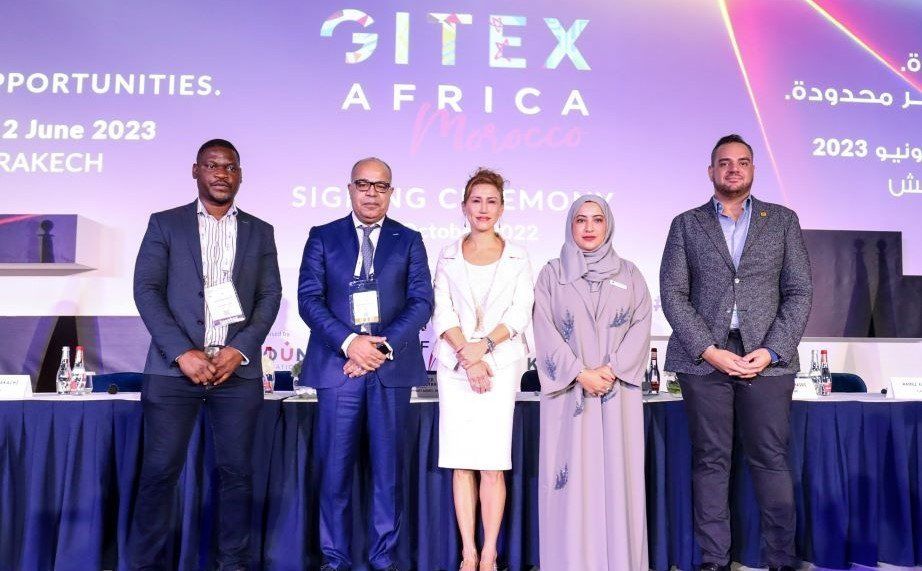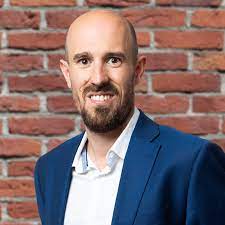Nexign Presents a Product Suite for Monetization and Efficiency Improvement of 5G SA (Standalone) Networks
Nexign takes part in GITEX Africa 2023 , the largest all-inclusive tech event in the region; The company presents its new suite of core network functions for converged charging, policy management, and signaling traffic routing in 5G SA mobile networks; New products are designed to support performance, flexibility, and reliability parameters required by Tier 1 and Tier 2 telcos; With these Nexign products, telecom operators can capitalize on the enhanced technical capabilities of 5G SA by launching innovative B2B and B2C services based on ultra-low latency, faster upload speeds, and guaranteed QoS for connected devices.
Nexign (https://apo-opa.info/45QK3T9), a leading provider of BSS and digitalization solutions from St. Petersburg, Russia, participates in GITEX Africa 2023, the largest international information technology exhibition in the pan-African region. GITEX Africa 2023 takes place in Bab Jdid, Bd Al Yarmouk, Marrakech, Morocco, from May 31st to June 2nd. The event connects leading tech companies, governments, SMEs, start-ups, coders, investors, and educators. It aims to accelerate technological development and explore new and emerging technologies from fintech, e-commerce, cloud, IoT, AI, telecom, and cybersecurity.

During the exhibition, Nexign showcases its new product suite for monetization and efficient management of 5G SA (Standalone) networks. It includes Nexign 5G Charging System (CCS), Nexign 5G Policy Control Function (PCF), Nexign Service Communication Proxy (SCP), and Nexign Network Repository Function (NRF). The suite lets communications service providers (CSPs) support charging, policy management, and signaling traffic routing for 5G SA networks. All products are developed in accordance with international 3GPP and ETSI specifications and TM Forum recommendations.
“According to GSMA Intelligence, 5G connections are expected to double and reach two billion by the end of 2025. We are witnessing a rapid adoption of 5G technologies across the world, a much faster one, as compared to the previous 3G and 4G generations. Nevertheless, the efficient use of 5G is possible only if CSPs optimize network infrastructure management costs and provide services across different network generations seamlessly and convergently. Besides, they should look for new ways to monetize complex business scenarios related to digital partner ecosystems, IoT, Industry 4.0, and B2B services. Nexign’s solutions have been supporting various business scenarios for 5G NSA networks for several years. Today we are pleased to announce the launch of a new product suite for monetizing next-generation 5G SA networks,” comments Sergey Sosin, Head of Product Management at Nexign.
Nexign CCS and Nexign PCF help CSPs quickly implement complex business scenarios and innovative services based on such 5G networks’ benefits as enhanced mobile broadband (eMBB), massive machine-type communications (mMTC), and ultra-reliable low-latency communication (URLLC). They contribute to the monetization of B2B services, including launch of mobile private networks (MPN), fixed wireless access (FWA), and the industrial internet of things (IIoT). The products also support the monetization of B2C services, such as VoNR, cloud gaming, and Ultra HD mobile streaming. Nexign CCS and Nexign PCF give CSPs complete and flexible control over quality of service parameters for customers and partners, including QoS management based on network slicing and service level agreements (SLAs). With these Nexign products, CSPs can use dynamic 5G SA network parameters to create differentiated services for customers with particular connectivity requirements.
In turn, Nexign SCP and Nexign NRF help simplify the topology and increase the transparency of large distributed 5G networks. They also allow CSPs to reduce the cost of maintaining and developing network infrastructure. Nexign SCP serves as a single point of control over message routing and load balancing across 5G core functions. The product optimizes the cost of the signaling network configuration and development thanks to the centralized configuration of nodes and consistent interaction of network components in a multivendor environment. At the same time, Nexign NRF acts as a 5G network function repository and provides centralized registration and discovery of different network function instances.
Read also : Banking Crisis Propels Bitcoin Higher
Nexign’s new product suite for monetization and efficient management of 5G networks offers scalability for dynamic business growth. It is suitable for Tier 1 CSPs thanks to high network availability and geo-redundancy of any network function. Products presented in the suite can be deployed in both private and public clouds.
At GITEX Africa 2023, the company will also showcase Nexign IoT Connectivity Platform and other solutions from its comprehensive BSS suite, including Nexign Revenue Management and Nexign Mediation.
Kelechi Deca

Kelechi Deca has over two decades of media experience, he has traveled to over 77 countries reporting on multilateral development institutions, international business, trade, travels, culture, and diplomacy. He is also a petrol head with in-depth knowledge of automobiles and the auto industry
















